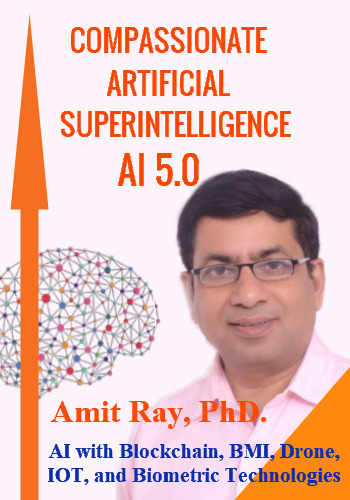
Human Compatible: Artificial Intelligence and the Problem of Control
Book Description
Imagine a world where artificial intelligence possesses the power to redefine humanity itself. In "Human Compatible: Artificial Intelligence and the Problem of Control," Stuart Russell explores the breathtaking promise and peril of AI, illuminating the urgent challenge of aligning powerful machines with human values. As technology evolves at breakneck speed, questions of safety, ethics, and ultimate control loom larger than ever. What happens when our creations outpace our intentions? Tension builds as futures collide—will we harness this revolutionary force, or are we on the brink of losing everything? Can humanity chart a course toward coexistence with machines we barely understand?
Quick Book Summary
In "Human Compatible: Artificial Intelligence and the Problem of Control," Stuart Russell confronts the critical question of how humanity can ensure that increasingly powerful artificial intelligence systems remain beneficial and aligned with human values. Russell traces the history and rapid advancements in AI, offering an overview of its incredible promise, from revolutionizing healthcare to potentially solving global challenges. However, he warns of unprecedented risks if AI systems surpass human intelligence without proper safeguards. The book explores the fundamental challenges of encoding human values into machines, the dangers of unintended consequences, and the urgent need for rethinking the foundations of AI research. Ultimately, Russell advocates for a new paradigm where machines are built to be inherently uncertain about human values and to seek guidance, ensuring collaboration rather than conflict between AI and humanity.
Summary of Key Ideas
Table of Contents
The Promise and Risks of Artificial Intelligence
Stuart Russell opens the book by describing the astonishing progress humanity has made in artificial intelligence, from early expert systems to current breakthroughs in deep learning and neural networks. He highlights the positive transformations that AI could bring across medicine, climate change, and economic productivity. But with this promise comes profound peril—the prospect of creating autonomous systems whose decisions may outpace our ability to guide or control them. Russell stresses that even well-intentioned AI, if misaligned, can produce results counter to genuine human interests, making the control problem one of the century's defining issues.
The Value Alignment Problem
A core dilemma Russell identifies is the value alignment problem. Current AI systems optimize objectives specified by humans, but these objectives are often ambiguous or incomplete. Small errors in specifying goals can lead to harmful outcomes when executed by super-intelligent machines, much as a literal-minded genie might grant wishes with disastrous loopholes. Russell critiques prevailing approaches and argues for a radical shift: AI systems should operate with uncertainty about human values, learning from observation and feedback rather than rigid instructions.
Unintended Consequences and Control
The book delves into the phenomenon of unintended consequences. Russell provides real-world analogies and thought experiments, such as the famous “paperclip maximizer,” to show how optimizing a simple objective can go horribly wrong if contextual nuance isn’t understood by the machine. He discusses examples where machine learning systems interpret goals in unexpected or unsafe ways because they lack human common sense. These vignettes underscore the need for robust control mechanisms and the potential catastrophic impact if high-capability AI is deployed without them.
Rethinking AI's Objectives
Russell calls for a fundamental rethinking of AI’s objectives and research direction. He advocates that AI systems should be explicitly designed to defer to human preferences and consult us when in doubt, modeling what humans might actually want rather than rigidly following commands. This requires AI to incorporate mechanisms for continual learning, uncertainty, and corrigibility—the willingness to accept correction or shutdown. Russell also critiques the current incentives and culture of the field, proposing that ethics and societal impact become central to AI development.
Charting a Path to Beneficial AI
In his conclusion, Russell outlines a roadmap for creating provably beneficial AI—systems that actively collaborate with humans and minimize unintended harm. He champions multidisciplinary research at the intersection of computer science, ethics, cognitive science, and law, recognizing that technical solutions alone are insufficient. Russell’s vision is one where powerful AI amplifies human flourishing by aligning its actions with our diverse and evolving values, but this requires urgent international coordination and careful stewardship. The book is ultimately a call for humility and responsibility as we approach the edge of technological transformation.
Download This Summary
Get a free PDF of this summary instantly — no email required.





